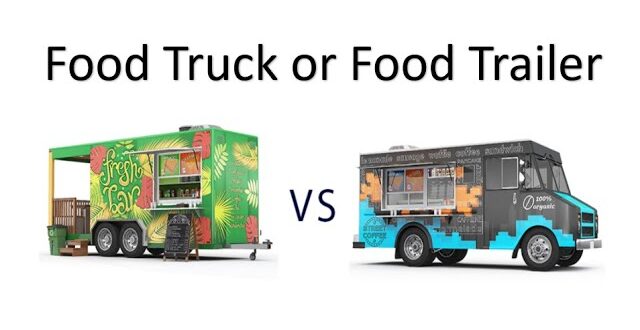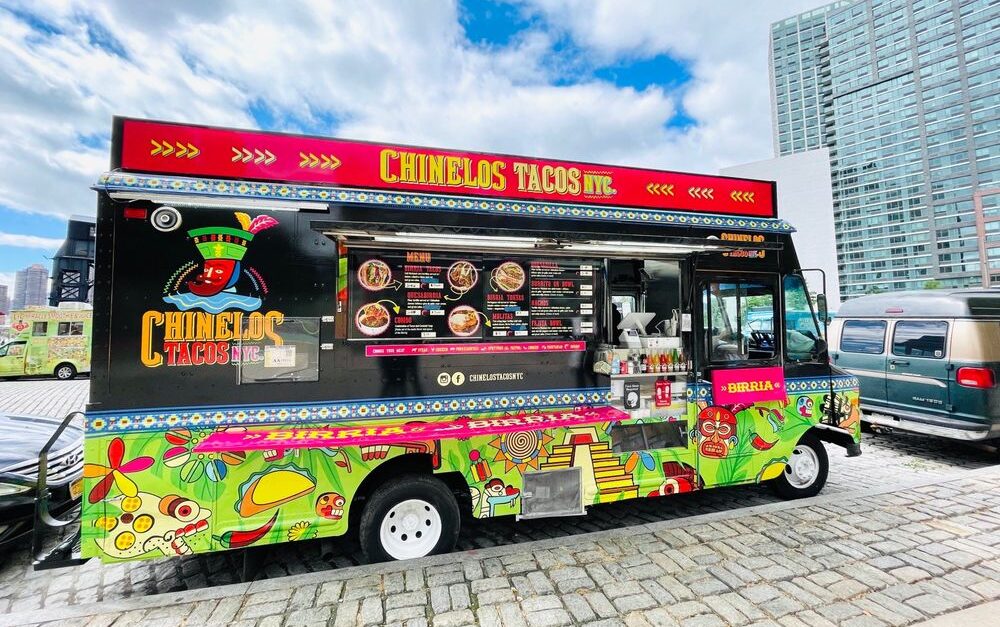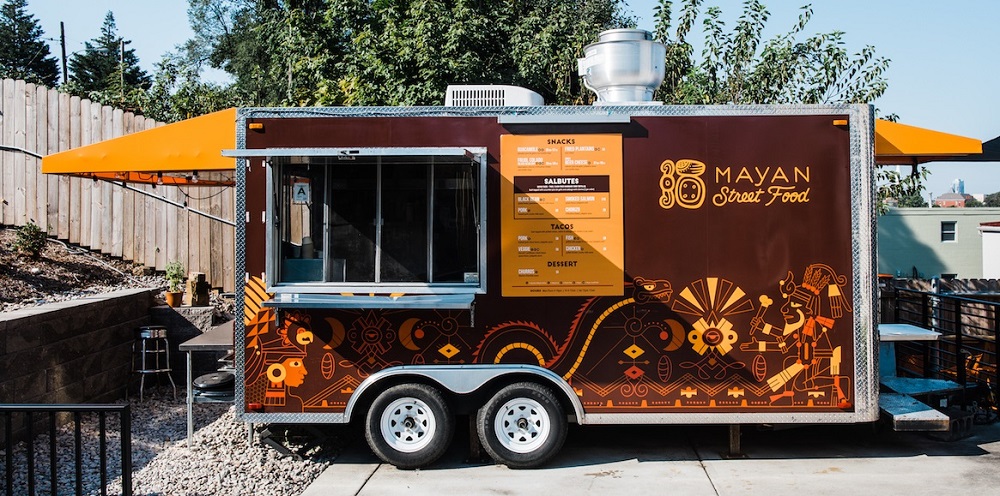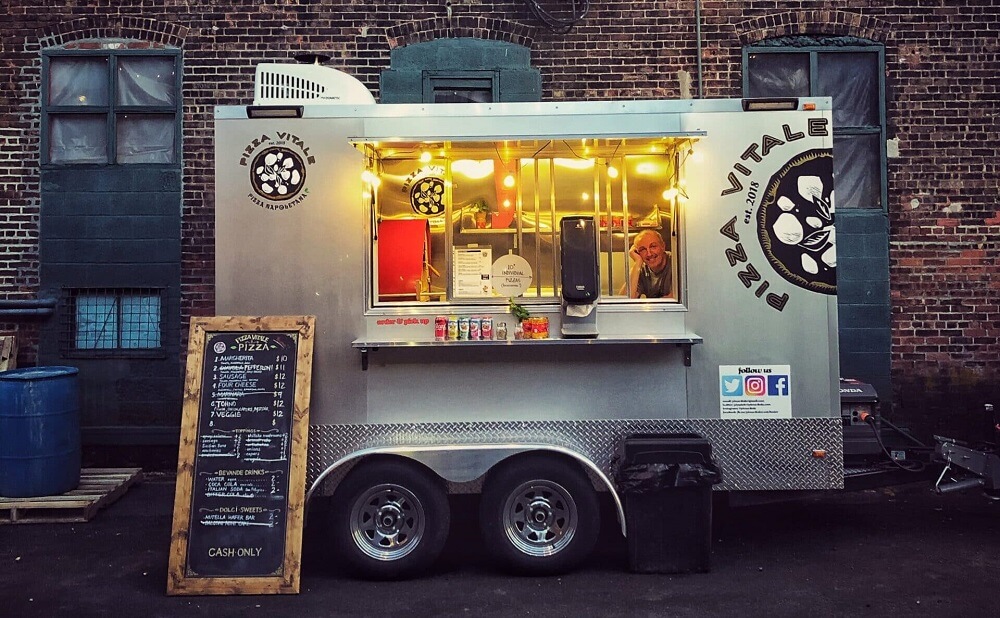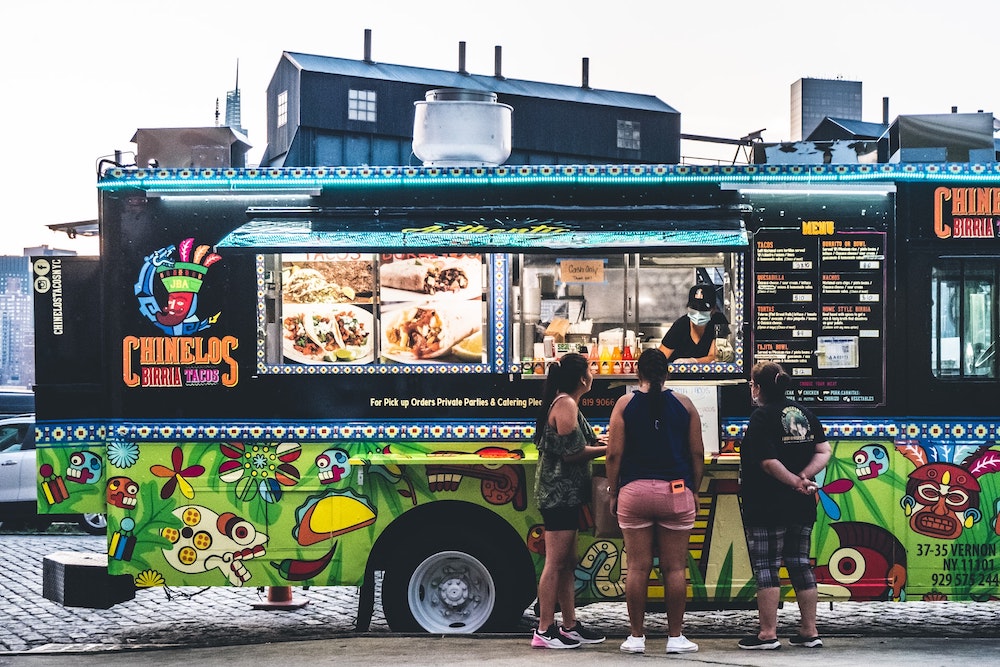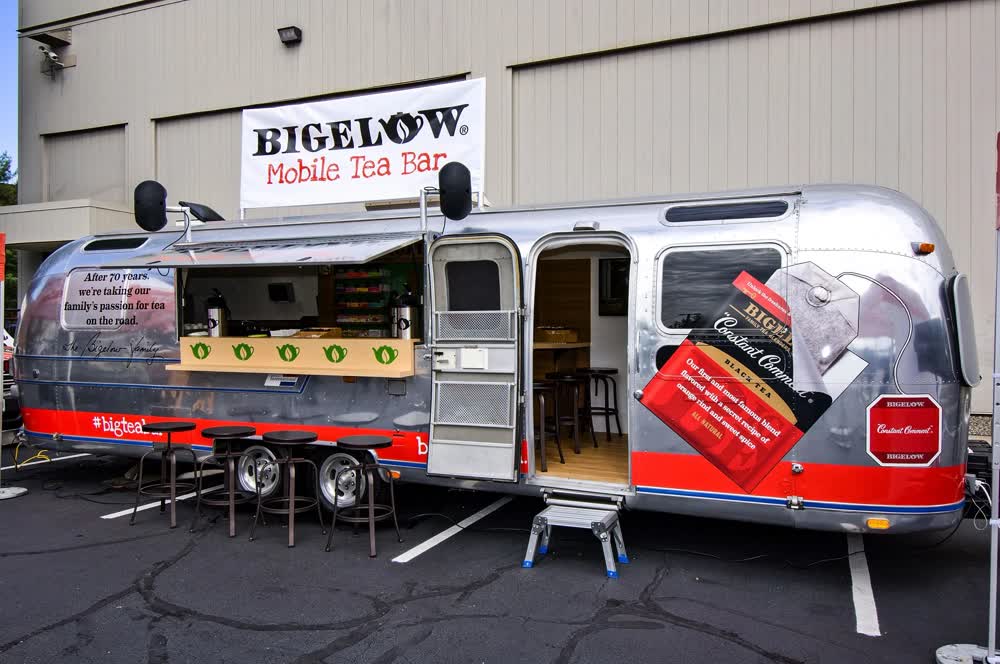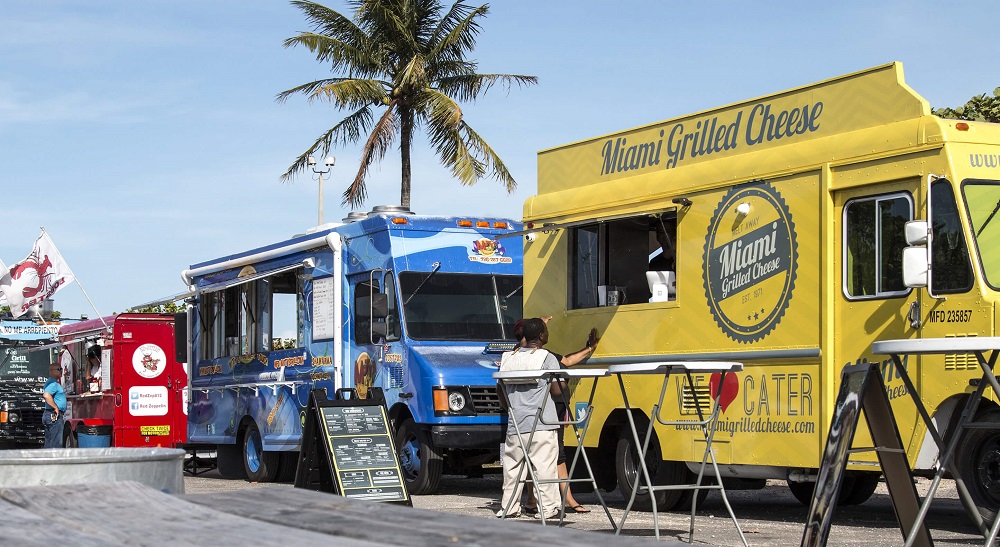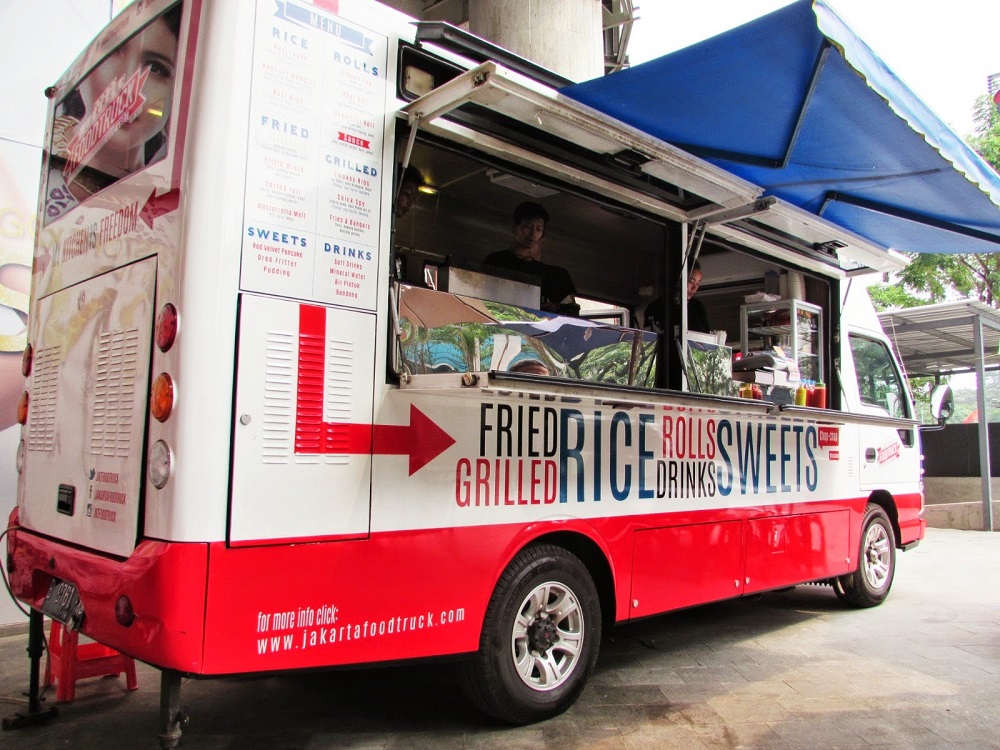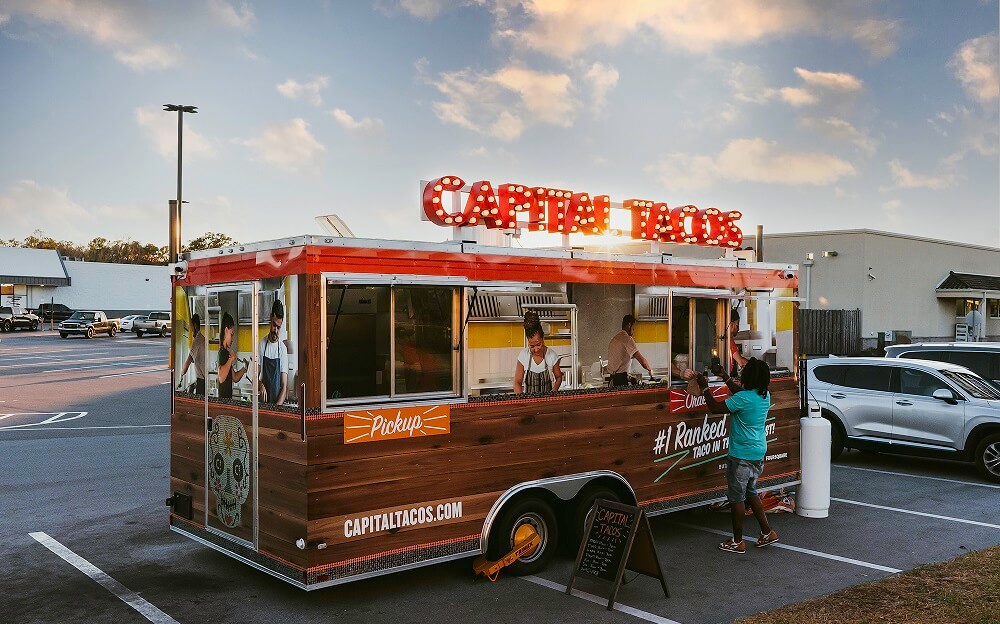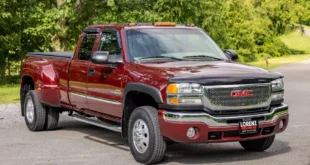Trucksbrands.com – Are you torn choosing a food truck vs concession trailer when starting your own food business? Both options have their own unique advantages and considerations to take into account.
A food truck is a mobile kitchen on wheels, typically equipped with cooking appliances, refrigeration units, and serving windows. It offers flexibility in terms of location as it can navigate through different neighborhoods or events.
On the other hand, a concession trailer is a stationary unit that requires towing to different locations. It’s often larger than a food truck and may offer more space for cooking equipment and storage.
In this article, we’ll delve into the key differences between food truck vs concession trailer, helping you make an informed decision that suits your needs and goals. So buckle up as we embark on this journey to find out which option reigns supreme: Food Truck vs Concession Trailer!
credit:the Lazy Startup
Food Truck Vs Concession Trailer: Pros and Cons
Food trucks offer greater mobility with their ability to travel independently and set up quickly at different locations. On the other hand, concession trailers provide convenience through towing and larger storage capacity, while still allowing vendors to establish a more fixed location presence.
Assessing these advantages and disadvantages can help you make an informed decision when choosing between a food truck or a concession trailer for your mobile food business venture.
Food Truck Pros and Cons
When it comes to the food industry, operating a food truck can offer both advantages and disadvantages. Let’s take a closer look at some of the pros and cons of running a food truck business.
Pros:
- Mobility: You have the flexibility to move your business to different locations, allows you to reach a wider audience and potentially increase sales.
- Lower Costs: Starting a food truck business typically requires lower upfront costs. You don’t need to invest in a permanent location or pay high rent fees.
- Increased Visibility: Food trucks unique designs and vibrant presence on the streets can help generate curiosity among potential customers and create buzz around your brand.
- Targeted Marketing: By strategically choosing your parking spots or participating in local events, you can directly reach out to potential customers who are already interested in trying new foods.
- Flexibility : Running a food truck allows for experimentation with menus and culinary creativity since you’re not limited by a fixed menu or dining concept like conventional restaurants.
Cons:
- Limited Space: The compact size of a food truck can pose challenges in terms of preparation efficiency and inventory management.
- Weather Dependency: Unlike indoor establishments, operating outdoors exposes your business to weather conditions such as rain or extreme heat which may impact foot traffic or even force temporary closures.
- Regulations : Food trucks must comply with various regulations regarding permits, licensing, health inspections, and zoning restrictions.
- Limited Seating: Food trucks generally lack seating options for customers. This may deter some potential customers who prefer a more comfortable dining experience.
- Maintenance and Repairs: Food truck repairs can be costly and may lead to temporary closures if the truck is out of service for an extended period.
Read also: Food Truck for Sale on Craigslist by Owner – Buyer’s Guide
Concession Trailer Advantages and Disadvantages
In general concession trailer offer versatility, storage capacity, customizability, and a lower initial investment. However, they come with limitations in terms of mobility, space requirements, set-up time, and permitting considerations.
Advantages:
- Versatility: Concession trailers offer more flexibility in terms of menu options and food preparation capabilities compared to food trucks. With adequate space, you can install various kitchen equipment and appliances, allowing you to cater to a wider range of culinary offerings.
- Bigger storage capacity: One major advantage of concession trailers is their larger size, you can stock up on inventory without worrying about running out during busy periods.
- Customizability: Concession trailers provide ample space for branding and customization. You have the freedom to design the exterior according to your brand identity, making it eye-catching and easily recognizable.
- Lower initial investment: In general, concession trailers tend to be less expensive than fully equipped food trucks.
Disadvantages:
- Limited mobility: Concession trailers require transportation via towing vehicles or heavy-duty trucks. This limits your ability to move around frequently or access certain venues that may not allow trailer parking.
- Space requirements: Due to their larger size, concession trailers demand more physical space for operation and storage when compared to compact food trucks.
- Set-up time: Setting up a concession trailer takes longer than operating a ready-to-go food truck since you’ll need time for unhitching from the towing vehicle and arranging all necessary utilities, such as power and water connections.
- Permitting and regulations: Just like food trucks, concession trailers are subject to local health department regulations, permits, and licensing requirements.
Read also: Used Concession Windows Craigslist, To Buy or Not to Buy?
Food Truck Vs Concession Trailer: Difference in Mobility
When it comes to mobility, both food trucks vs concession trailers offer a level of flexibility that traditional brick-and-mortar restaurants simply can’t match. However, there are some key differences between the two.
In general, food trucks offer greater mobility with their ability to travel independently and set up quickly at different locations. On the other hand, concession trailers provide convenience through towing and larger storage capacity, while still allowing vendors to establish a more fixed location presence.
| Food Truck Mobility | Concession Trailer Mobility |
|---|---|
| Designed for independent travel | Towed behind a vehicle |
| Quick setup and pack-up | Larger storage capacity |
| Versatile parking options | Fixed location flexibility |
Both options have their unique advantages, so it ultimately depends on the specific needs and goals of the vendor when choosing between a food truck or concession trailer.
Food Truck Mobility
Food trucks are known for their ability to move around freely and cater to different locations and events. Here’s why food trucks excel in terms of mobility:
- Ease of Transportation: Food trucks are designed to be easily transported from one location to another. They typically have built-in engines, allowing them to travel on their own without the need for an additional vehicle.
- Quick Setup and Pack-up: Food trucks are equipped with all the necessary equipment and facilities needed to prepare and serve food on the go. This means they can quickly set up at any location, start serving customers, and pack up efficiently when it’s time to move on.
- Versatility in Parking: Food trucks have more flexibility when it comes to parking options. They can park in designated areas or secure permits for specific locations such as street corners or parking lots. This versatility allows them to reach a wider customer base by strategically positioning themselves in high-traffic areas or near popular events.
Concession Trailer Mobility
While concession trailers don’t have the same level of mobility as food trucks, they still offer several advantages:
- Towable Convenience: Concession trailers are designed to be towed behind a vehicle, making transportation relatively easy. They can be hitched onto a truck or van, allowing for greater flexibility in terms of moving them from one place to another.
- Larger Storage Capacity: Concession trailers often provide more storage space than food trucks due to their larger size. This enables vendors to carry a wider variety of ingredients, supplies, and equipment necessary for catering larger events or festivals.
- Fixed Location Flexibility: While not as mobile as food trucks, concession trailers can still be set up in a fixed location for extended periods. This allows vendors to establish a regular customer base and build brand recognition by consistently serving at the same spot.
Read also:
Used Food Trucks: How to Get Financing and Loan?
Citroen Food Truck For Sale-Things to Look
Cost Comparison: Food Truck vs Concession Trailer
One of the key decisions when it comes to starting a mobile food business is the cost. Let’s take a closer look at the cost comparison between food truck vs concession trailer:
1. Initial Investment
The initial investment for a food truck tends to be higher than that of a concession trailer. This is primarily because food trucks require custom-built vehicles with specialized equipment such as cooking appliances, refrigeration units, and plumbing systems.
On the other hand, concession trailers can often be purchased pre-owned or customized from standard utility trailers, which can help reduce costs.
2. Operating Costs
Both food trucks vs concession trailers have similar expenses such as fuel or electricity for powering appliances, insurance, permits/licenses fees, and maintenance. However, food trucks typically consume more fuel due to their size and weight compared to smaller concession trailers.
3. Mobility
Food trucks offer greater mobility compared to concession trailers due to their self-contained design. The built-in engines allow them to travel independently without being towed by another vehicle.
4. Customization Options
While both options allow for customization according to your specific needs and branding requirements, food trucks generally provide more space for creative modifications such as exterior wraps or unique interior layouts due to their larger size compared to concession trailers.
In summary,
| Factors | Food Truck | Concession Trailer |
|---|---|---|
| Initial Investment | Higher | Lower |
| Operating Costs | Similar, possible higher fuel and maintenance costs | Similar |
| Mobility | Greater mobility due to self-contained design and engine | Requires towing by another vehicle |
| Customization Options | More space for creative modifications, both exterior and interior | Limited space for modifications |
Read more:
Food Truck for Sale Wisconsin, To Buy, Rent, or Lease?
Concession Trailers for Sale Craigslist Top Tips for Buying
Licensing and Regulations
When it comes to operating a food truck or concession trailer, understanding the licensing and regulations is crucial. Ensuring compliance with local laws and regulations not only keeps you on the right side of the law but also helps to protect your business and customers.
Here are some important points to keep in mind:
- Permits and Licenses
- Health Department Inspections
- Zoning Regulations
- Fire Safety Requirements
- Insurance Coverage
- Compliance with Local Laws
Remember, the licensing and regulatory landscape can vary from one location to another. It’s important to consult with local authorities, licensing agencies, and industry associations to ensure that you have all the necessary permits and are following the rules in your area.
By staying compliant, you can focus on serving delicious food and providing a positive experience for your customers. Choosing the Right Option for You
Factors to Consider: Food Truck vs Concession Trailer
When it comes to deciding between a food truck and a concession trailer, there are several factors to consider. Both options have their own advantages and disadvantages, so it’s important to choose the right one that aligns with your specific needs and goals.
Here are some points to help you make an informed decision:
1. Mobility: Food trucks offer flexibility in terms of choosing different spots and targeting various customer demographics. On the other hand, concession trailers tend to be more stationary and require a dedicated space for operation.
2. Size and Capacity: Food trucks typically have a larger size compared to concession trailers, providing more space for equipment, storage, and food preparation. This can be beneficial if you plan on serving a wide variety of menu items or need room for additional staff members.
3. Cost Considerations: The cost of purchasing or renting a food truck vs a concession trailer can vary significantly depending on factors. It is crucial to evaluate your budget carefully before making a decision.
4. Licensing and Regulations: Before starting your mobile food business, familiarize yourself with local regulations regarding permits, licenses, health inspections, zoning restrictions, parking requirements, etc.
5. Branding Opportunities: Both of food truck vs concession trailer provide branding opportunities through custom wraps or signage that showcase your business name/logo creatively. Consider how each option aligns with your brand identity and target market.
6. Personal Preference: Ultimately, choosing between a food truck vs concession trailer depends on personal preference as well as the type of cuisine you plan to offer. Consider the atmosphere you want to create, your comfort level with driving a larger vehicle, and how you envision interacting with customers.
At the Glance
Selecting between a food truck vs concession trailer requires careful consideration of factors. You should consider the mobility, size and capacity, cost considerations, licensing and regulations, branding opportunities, and personal preference.
Assess your specific needs and goals before making a decision that will set the foundation for your mobile food business.
More from Trucksbrands.com:
Craigslist Used Food Trucks for Sale Under $5000 Near Me
Used Concession Trailers For Sale Under $5000 – Buyer’s Guide
Food Trucks for Sale in NC, Learn the Startup Cost Here
 Trucks Brands News Best Truck Brands
Trucks Brands News Best Truck Brands
